Seed is seeking to redefine gut and vaginal health with its three innovative pre-and probiotic formulas. The Seed Daily Synbiotic and Seed Pediatric Synbiotic are designed to support gut health by promoting a balanced and diverse microbiome, which plays a role in digestion, immunity, and skin health. Its newest product, the Seed Vaginal Synbiotic, aims to maintain a healthy vaginal microbiome through a combination of probiotics and a prebiotic nutrient complex.
All Seed probiotic supplements are thoroughly tested, free from major allergens, and available by subscription. You’ll also note that, unlike many probiotic supplements that display the colony-forming units (CFUs) of bacteria, Seed counts the AFUs or active florescent units. The number of AFUs tells you how many viable cells are present in the supplement, whereas CFUs tell you how many cells are present that are capable of dividing and forming colonies. (1)
We researched and reviewed all three Seed Synbiotic supplements, analyzing the doses, ingredients, clinical evidence, value, and many other features so you can decide if these pre- and probiotic blends are right for you.
Medical disclaimer: This article is intended for educational and informational purposes only. It is not intended as a substitute for medical advice. For health advice, contact a licensed healthcare provider.
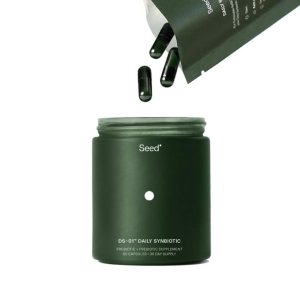

Key product features
What you should know
Seed Daily Synbiotic contains a blend of pre-and probiotics to support digestion and overall health and wellness with a subscription-based supplement service.
- The extensive in-house and third-party testing and ViaCap technology that helps ensure this synbiotic is safe, pure, and effective is above and beyond what many probiotic supplements do.
- At $49.99 for a month’s supply, this supplement is pricey, but given its extensive testing and composition, it may be well worth the price tag for some people.
- Seed Daily Synbiotic may be best for people with digestive concerns like irregular bowel movements or bloating, as the beneficial effects may be most noticeable. (2, 3)
- While this supplement is pricey, ordering it from the website allows you to take advantage of bulk-order savings and the 30-day money-back guarantee if it doesn’t meet your expectations.
Why we like Seed DS-01® Daily Synbiotic
Seed Daily Synbiotic is an all-in-one prebiotic and probiotic for men and women to support digestion and a healthy gut microbiome. As a synbiotic, this supplement provides 53.6 billion AFUs of 24 strains of beneficial gut bacteria and prebiotic fiber to help nurture those bacteria in the gut.
One issue with many probiotics is that the live and active cultures can’t withstand the harsh environment of the stomach and early digestive tract to make it to the colon. (4) However, with the help of pre-biotics, the ‘good’ bacteria is able to thrive during and after the process. The colon is where fermentation takes place, and pre-and probiotics have the biggest benefit on overall health and digestion. (4)
While this supplement is expensive, it provides extensive testing and technology to make sure you receive and can use everything the bottle claims, using ViaCap technology to resist the damaging effects of stomach acid. The outer layer includes prebiotic fibers and protects the live bacteria from oxygen, moisture, and heat, while the inner layer contains the beneficial microbes. The capsule is designed to dissolve after 3 hours of exposure to stomach and intestinal acids. (5)
The prebiotic fiber comes from punicalagin, obtained from Indian pomegranate. Microbes in the gut break down this particular fiber to produce the metabolites ellagic acid, which helps to strengthen the intestinal barrier, and urolithin A, which protects the barrier from inflammatory dysfunction. (6)
You’ll find four probiotic blends claiming to support everything from digestive and heart health to healthy skin and micronutrient absorption. Many of the individual probiotic strains included are clinically proven to support what Seed claims. For instance, this supplement contains 3.3 billion AFUs of a blend of four strains they claim to support skin health, including Lacticaseibacillus casei, which may help prevent collagen breakdown in the skin from UV exposure, and Ligilactobacillus salivarius, which may support the production of hyaluronic acid, improving moisture and barrier function of the skin. (7, 8)
“While this product includes research backed strains, I would prefer not to see them hidden under a proprietary blend and instead list out the amounts of each strain included within the product. Proprietary formulas are a way for companies to hide what’s in their product rather than spelling out each individual ingredient and the amount,”
Chris Mohr, Ph.D., RD.
As for testing, each batch is said to be tested for probiotic potency, heavy metal contaminants, the presence of harmful microbes, and water activity. Less frequent testing for allergens, thermostability, and chemical contaminants is also done. It’s clear that Seed does third-party testing for quality, pesticides, and allergens, although it doesn’t disclose who is doing said testing, nor do they include a certificate of analysis for the results. However, it’s not clear if it’s doing just in-house testing or third-party testing for purity and potency.
While Seed does include the AFUs of each probiotic blend, the blends themselves are proprietary, so we can’t know for sure how many of each strain is included in the blend. While many of the probiotic strains used do have clinical evidence backing them up, the lack of transparency in the amount of each used in Seed Daily Synbiotic makes it difficult to determine effectiveness. If you are looking for a specific strain, you will be unable to discern how much is included, which can be a big drawback.
As a commitment to reducing waste, you’ll receive a reusable glass container with your first order and refillable packs in each subsequent order. One of the biggest cons of this supplement is the cost and the requirement to sign up for a subscription. A month’s supply is $49.99, but you can save 10% to 15% by signing up and paying for 3 or 6 months at a time.
What customers are saying
Seed Daily Synbiotic has received 743 global ratings on Amazon, mostly positive, with a 3.9 out of 5 average rating. Many customers like how easy the capsules are to swallow and feel that it helps their gut and immune health, but aren’t too impressed with the price tag.
“This product has done wonders for my gut health. It’s the first one I have really noticed a big difference. I only docked it a star because it is a bit pricey. But man! This is good stuff!”
Linda L., verified Amazon reviewer
Even with all of the positive reviews, there are many customers who feel this supplement doesn’t live up to the hype or price tag and may even cause stomach issues instead of helping them. “Did nothing but give me gas.” says Amazon customer Brandi J, while Herbalgirl says,” Might work for others. But this is not for me. Tried just one capsule and got sick to the stomach.”
Specs
| Cost per serving | $1.67 |
| Dosage | 2 capsules |
| Active ingredients | Bifidobacterium, Lactiplantibacillus, Lacticaseibacillus, Lactobacillus, and Ligilactobacillus strains, and Indian Pomegranate |
| AFU count | 53.6 billion |
| Other ingredients | Chlorophyllin, hypromellose, fermented gellan gum, water, organic rice fiber, organic rice extract blend |
| Special diets | Vegan, free from gluten, dairy, soy, nuts, shellfish, and sesame |
| Guarantee | 30-day |
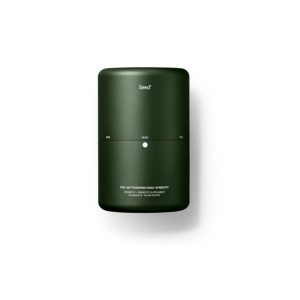

Key product features
What you should know
Seed Pediatric Daily Synbiotic is an unflavored powdered supplement containing 20 billion AFUs and 5 grams of prebiotic fiber to support a healthy gut microbiome and digestion. It’s made for kids aged 3 to 17 and mixes easily into any non-hot liquid or food.
- PDS-08® Pediatric Daily Synbiotic is clinically shown to improve the number of bowel movements and gut microbial richness in children with low baseline weekly bowel movements. (9)
- At $49.99 for a month’s supply, this could be pricey, especially for parents of multiple kids.
- Seed Pediatric Daily Synbiotic may be best for children who struggle with constipation or gut issues or those who have recently completed antibiotics to replenish and restore the gut.
- A high-quality prebiotic supplement with 5 grams in every serving, it helps picky eaters or kids with low appetites get the recommended servings of fiber each day.
Why we like Seed PDS-08® Pediatric Daily Synbiotic
As a pre-and probiotic formulated specifically for kids, Seed Pediatric Daily Synbiotic has specific probiotics to help support a healthy gut, respiratory system, and skin health. Most notably, this supplement may help improve regularity and decrease constipation for kids who struggle to go to the bathroom, and may even help with diarrhea.
In a self-funded, peer-reviewed study, 64 kids received either Seed Pediatric Daily Synbiotic or a placebo for 84 days. Of the 21 children who started the study with less than 4 bowel movements per week, 61.5% of those taking the synbiotic supplement had an increase of at least one bowel movement per week. In contrast, only 25% of those taking the placebo saw an increase. The study also saw an increase in gut microbiome species richness from pre-study to post-study, but the species richness did not seem to correlate to responsiveness to the supplement. (9) While this does show promising results, we’d love to see a larger study, as this one included less than 100 people, not enough to truly know if the results are repeatable.
Most of the probiotic strains used in this supplement are clinically proven to be beneficial for children. Lacticaseibacillus rhamnosus supports improved quality of life and reduced disease severity for children suffering from atopic dermatitis, and Lactobacillus acidophilus is frequently used to reduce diarrhea in children. (10, 11) What isn’t ideal is that this supplement includes proprietary blends of the probiotics, so while we know there are 20 billion AFUs included, there’s no way to determine if each strain has a clinically effective and safe dose.
The 5 grams of prebiotic fiber, a fiber commonly found in fruits and vegetables, is a nice added touch, as 32% of kids eat no fruit and 49% eat no vegetables over the span of a week. (12)
“Fiber intake is critical for kids and adults alike. Yet data shows that neither are meeting the recommendations. Ideally, people will meet their fiber intake through a variety of foods, like produce, grains, legumes, etc,” Mohr said. “But a dietary complement to give an added boost may certainly offer benefits.”
To get your kids to actually take this synbiotic supplement, you just mix the powder in with any room-temperature liquid or food (like yogurt or pudding). The powder itself is unflavored and sugar-free and has to be consumed within 30 minutes. Seed says that your child must eat or drink the entire amount to get the full effect of the synbiotic. The likelihood that kids, especially small children, won’t eat or drink all of it within the required time can be high, leading to wasted supplements and wasted money. So it may take a little practice to determine the best “vehicle” to allow them to use all of the product.
While there are no customer reviews available, the small study reported that it was well tolerated by subjects with no reported side effects. It’s also allergen-friendly, vegan, and free from artificial flavors, colors, and preservatives, making it a safe option for most food-sensitive kids.
If you’re a busy parent who can barely keep your own supplements straight, let alone your kids, you’ll appreciate the easy tracking system on the reusable container that lets you mark the most recent day’s dose so you can stay on track.
We’ve featured Seed Probiotic in:
Specs
| Cost per serving | $1.67 |
| Dosage | 1 packet |
| Active ingredients | Bifidobacterium, Lacticaseibacillus, Lactobacillus, and Ligilactobacillus strains, and inulin and fructooligosaccharides from chicory root |
| AFU count | 20 billion |
| Other ingredients | Glyceryl fatty acid esters |
| Special diets | Vegan, free from gluten, dairy, soy, nuts, shellfish, and sesame |
| Guarantee | 30-day |
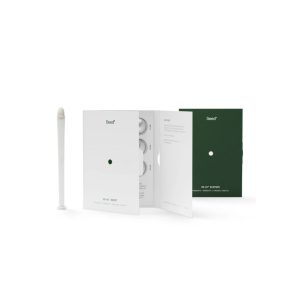

Key product features
What you should know
Seed Vaginal Synbiotic supports a healthy vaginal microbiome and may be beneficial for women who experience symptoms of vaginal dysbiosis.
- The strain used in Seed Vaginal Synbiotic has abundant clinical evidence supporting its effectiveness for a healthy vaginal microbiome. (13)
- Compared to other Seed synbiotic supplements, this supplement is lower priced for a month’s supply, even though the price per dose is significantly higher.
- Seed Vaginal Synbiotic may be best for women who experience frequent vaginal irritation and episodes of bacterial vaginosis.
Why we like Seed VS-01™ Vaginal Synbiotic
Seed Vaginal Synbiotic is a vaginally-inserted dissolvable tablet that works to restore your vaginal microbiome to a healthy balance by introducing three strains of L. crispatus, a clinically-studied probiotic beneficial to vaginal health. (13, 14)
In your first order, you’ll receive six tablets to be used on specific days throughout the month, ideally starting on the last day of bleeding of your cycle. You’ll also receive two tablets to be used on day 1 and day 14 of month two. Each packet comes with disposable applicators to easily insert the dissolvable tablets. After the two-month starter kit, you can order a monthly pack of two tablets or choose three-month refills for a discount. Unlike other Seed Synbiotic products, Seed Vaginal Synbiotic is HSA/FSA eligible, which may make it more affordable.
A vaginal microbiome that’s dominated by L. crispatus instead of harmful bacteria like Gardnerella vaginalis may have increased protection against infections like bacterial vaginosis (BV) or vulvovaginal candidiasis (VVC) and subsequently be better protected against STI infections thanks to a decrease in genital inflammation. (13, 14) One small randomized, double-blind, placebo-controlled study found that supplementing with Lactobacillus crispatus containing probiotics significantly reduced the signs and symptoms of BV and VVC while also reducing BV-related vaginal bacteria and increasing lactobacilli counts. (14)
This supplement claims to use a SMART Tablet delivery system to slowly dissolve and maximize adherence of the probiotic to the vaginal wall. It’s also formulated with prebiotics to help the microbes survive and thrive in the vaginal environment. Maltose, a main ingredient used in the prebiotic nutrient complex, supports the growth of Lactobacillus bacteria and the decline of BV-causing bacteria. (15)
Results from a self-funded randomized, double-blind, placebo-controlled clinical trial are available on the Seed website and state that 90% of participants who had a non-optimal vaginal microbiome converted to an optimal microbiome after use. The results also show a 75% increase in Lactobacillus crispatus at day 21 in those with a baseline non-optimal vaginal microbiome. Unfortunately, this study is not available to review online at this point, so limitations and study parameters are not clear.
“It’s important for women to be in charge of their own health. At the same time, the vagina does a good job regulating its diverse mix of bacteria, biotics, and other organisms on its own, so if there is a health concern or something abnormal, it’s best to seek the expertise of a gynecologist to address any concerns. That said, vaginal probiotics as a blanket recommendation seem to be unnecessary, but may be complementary to other health expertise,” says Mohr. (16)
Specs
| Cost per serving | $12.38 for the first 2 months, then $19.99 per dose |
| Dosage | 2 tablets per month (after the first month of 6 tablets) |
| Active ingredients | L. crispatus LUCA103™, L. crispatus LUCA011™, L. crispatus LUCA009™, maltose, calcium lactate, glutamine, dibasic magnesium citrate, cystine |
| AFU count | Not applicable |
| Other ingredients | Plant-derived cellulose, magnesium stearate, hydroxypropyl methylcellulose |
| Special diets | Vegan, free from PFAs, BPA, phthalates, artificial fragrances, dyes, preservatives, and parabens |
| Guarantee | 30-day |
How we test supplements
We’re committed to providing the most thorough and accurate supplement reviews possible. This includes reviewing and researching each supplement and providing genuine, expert-led insights and feedback. You can learn more about our supplement testing methodology and get a clear understanding of how we weigh each factor, including ingredients, efficacy, testing, and more. Here’s how we evaluated the Seed Probiotics supplements for this article.
Efficacy—40%
Before we make a product recommendation, we research whether or not the research supports the supplement’s claim. Here’s what we evaluate when reviewing Seed Probiotics.
- Clinical evidence
- Calories per serving
- Dose efficacy
- Synergistic effects
- Proprietary blends
Safety and side effects—35%
With any supplement, especially a daily probiotic, you want to ensure there are minimal health risks and potential adverse effects. We review the safety of the products as well as the testing that the company has done to ensure a pure final product free from dangerous contaminants.
We look for:
- Reported side effects
- Third-party testing
- Manufacturer accreditation
- Artificial sweeteners
Value—20%
Value doesn’t mean the lowest price but rather that the price matches what the supplement offers in terms of effectiveness, safety, and quality.
Our factors in this rating include:
- Price per serving
Customer experience—5%
When possible, we review customers’ experience with the company and supplement use to see any overarching themes in positives or negatives associated with the supplement. Reviewing multiple reviews provides more value in understanding common themes than a singular experience
We consider these factors in our rating:
- Ease of purchase
- Shipping and returns
- Customer support
What is Seed?
Seed is a premium subscription-based probiotic supplement company that focuses on developing probiotics and prebiotics to support various aspects of human health, particularly the microbiome. The company is known for its flagship product, the Seed Daily Synbiotic, which features 24 strains of prebiotics and probiotics.
It also offers a Pediatric Daily Synbiotic for kids ages 3 to 17 and a Vaginal Synbiotic supplement to support a healthy vaginal microbiome.
Seed emphasizes rigorous scientific research, transparent product formulation, and education about the microbiome’s role in overall health. The company’s supplements feature technology to help with the viability and delivery of the microbes to the appropriate places in the gut and vaginal walls, depending on the product.
All seed products are tested to be free from contaminants like heavy metals, chemical contaminants, and harmful microbes, and tested to ensure that the number and type of advertised microbes are present and viable.
How does Seed work?
Seed Daily Synbiotic is a subscription-based pre-and probiotic supplement taken daily. You can order a monthly delivery or three or six-month supplies to save up to 15%. The recommended dose is two capsules per day, taken on an empty stomach. The 24 strains of probiotics and prebiotic fiber work together in your gastrointestinal tract to promote a healthy, diverse microbiome that supports gastrointestinal health, immune health, your skin, heart, and optimal micronutrient absorption.
Seed side effects
According to Seed, you may experience mild side effects when you first begin taking Seed Daily Synbiotic, but these side effects generally go away within the first one to two weeks. Common side effects may include bloating, nausea, changes in bowel movements, or just generalized stomach discomfort. (17) To decrease the risk of side effects, Seed recommends starting slowly with just one capsule daily until side effects subside, or by day four, increasing to two capsules daily.
Who is Seed best for?
Seed Daily Synbiotic is made for any adult, 18 or older, who is interested in supporting a healthy gut microbiome. While you may experience noticeable effects if you currently struggle with digestive issues like constipation, diarrhea, gas, or bloating, other systemic effects may not be as obvious. (2)
If you are pregnant, breastfeeding, immunocompromised, or taking medications, you should check with your healthcare provider before taking Seed Daily Synbiotic or any Seed product, as it may not be safe.
Compare Seed with other probiotics
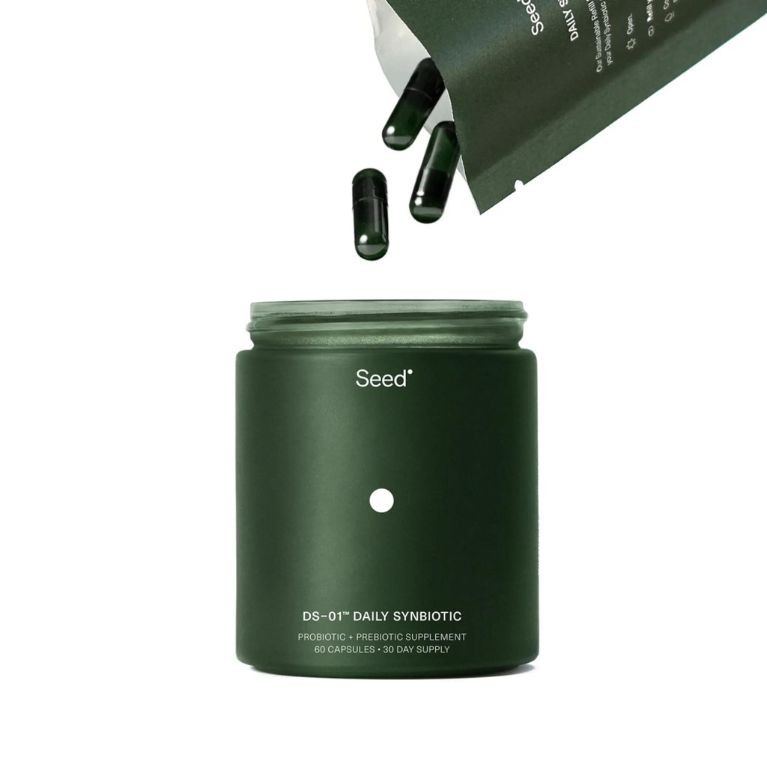
|
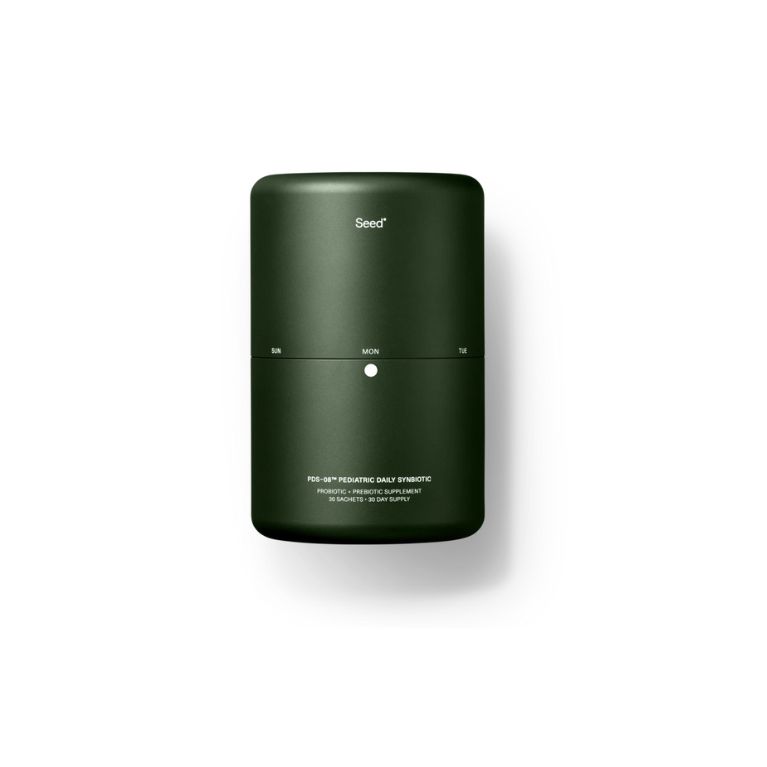
|
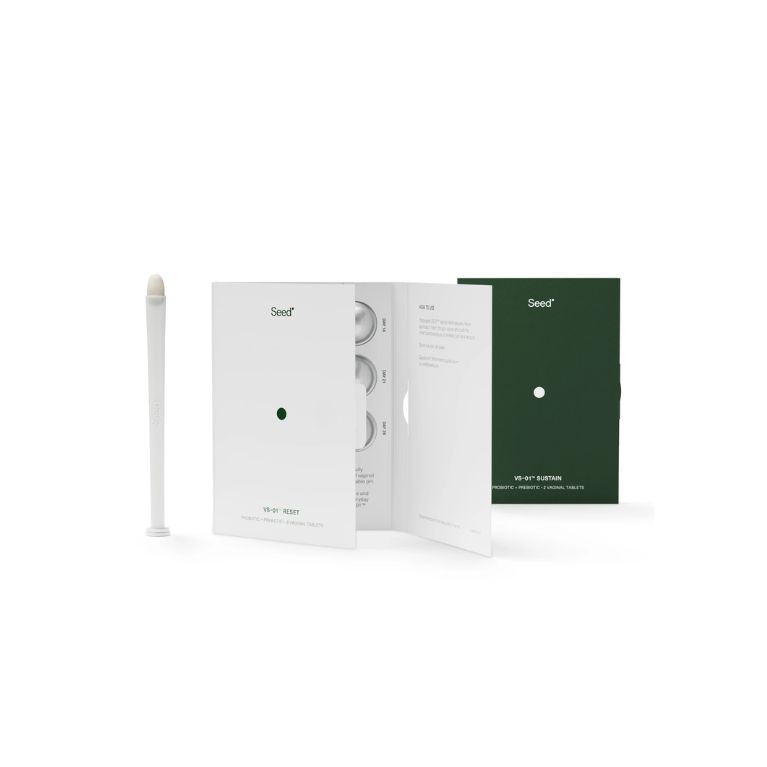
|
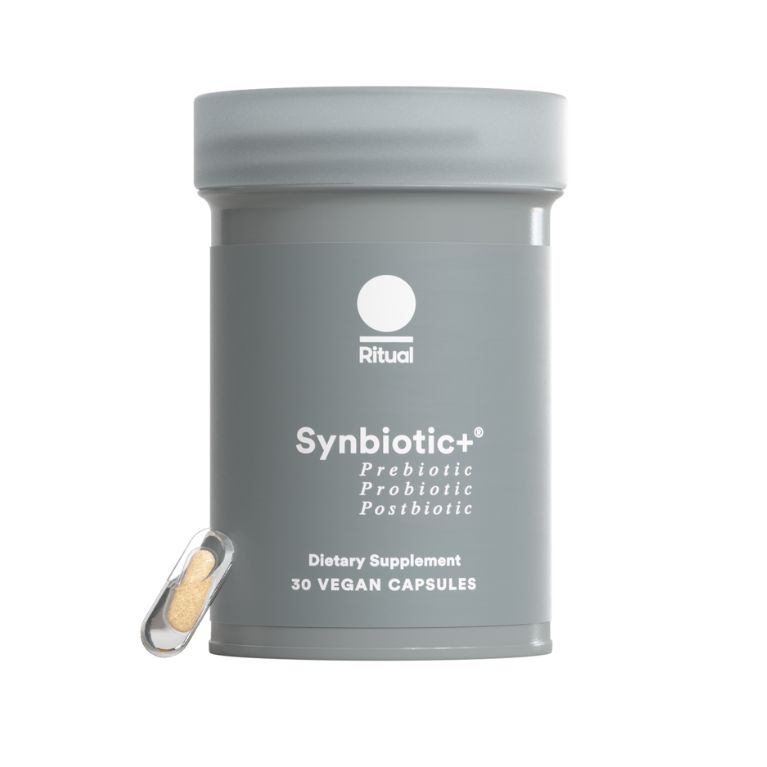
|
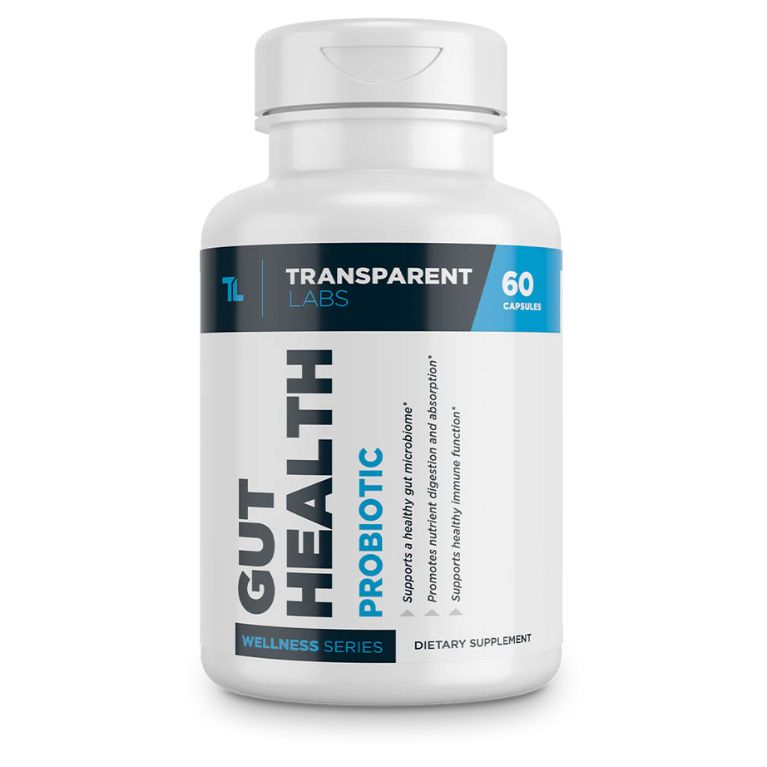
|
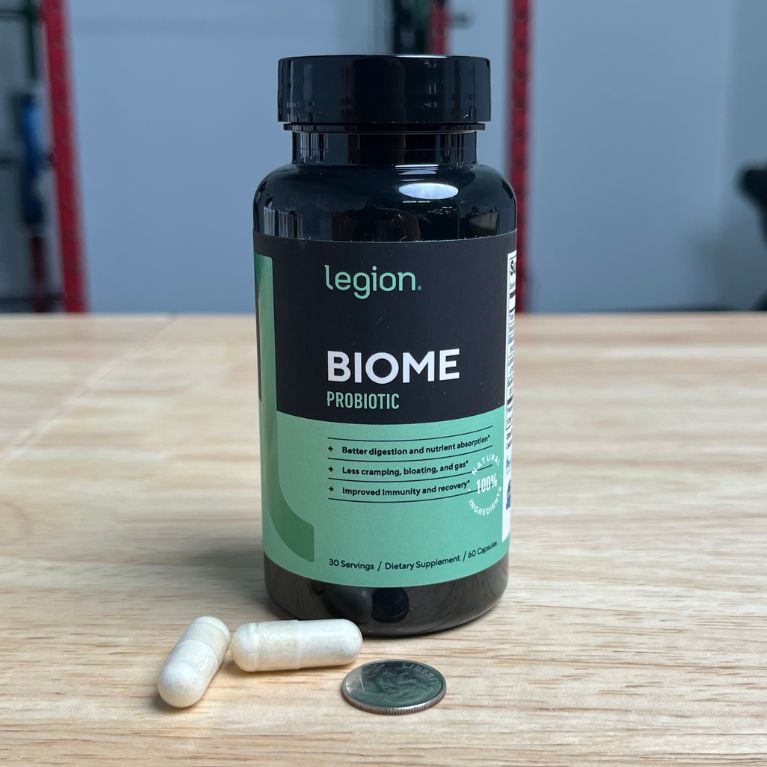
|
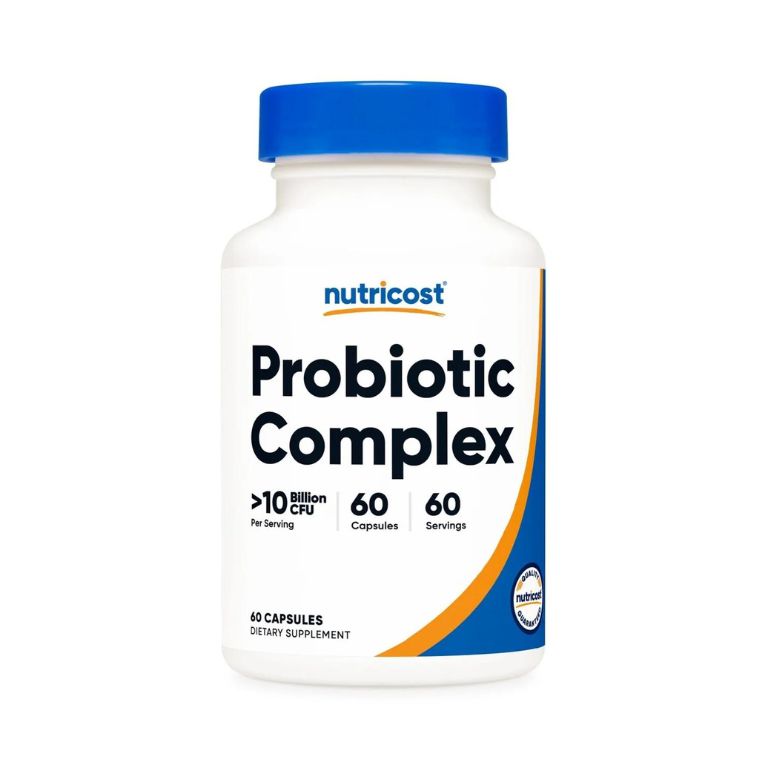
|
|
| Seed DS-01 Daily Synbiotic | Seed PDS-08 Pediatric Daily Synbiotic | Seed VS-01 Vaginal Synbiotic | Ritual Synbiotic+ | Transparent Labs Gut Health | Legion Biome | Nutricost Probiotic Complex | |
| Rating | |||||||
| Cost per serving | $1.67 | $1.67 | $12.38 for the first 2 months, then $19.99 per dose | $1.80 | $1.53 | $1.67 | $0.25 |
| Dosage | 2 capsules/day | 1 packet/day | 2 tablets/month | 1 capsule/day | 2 capsules/day | 2 capsules/day | 1 capsule/day |
| Active ingredients | 53.6 billion AFUs of Bifidobacterium, Lactiplantibacillus, Lacticaseibacillus, Lactobacillus, and Ligilactobacillus strains, and Indian Pomegranate | 20 billion AFUs of Bifidobacterium, Lacticaseibacillus, Lactobacillus, and Ligilactobacillus strains, and inulin and fructooligosaccharides from chicory root | 3 L. crispatus probiotic strains, maltose, calcium lactate, glutamine, dibasic magnesium citrate, cystine | Lactobacillus rhamnosus, and Bifidobacterium animalis, LH01, T4D, Tributyrin | 100 billion CFUs of Lactobacilli, Bifidobacteria, and Streptococci strains | 25 billion CFUs of Bifidobacterium lactis, Bacillus subtilis, and Lactobacillus plantarum strains, PreticX® xylooligosaccharide | 10 billion CFUs of Lactobacillus, Lactococcus, Saccharomyces, and Bifidobacterium strains |
FAQs
Is Seed probiotic FDA approved?
Seed probiotics are not FDA-approved, as they’re considered dietary supplements, and supplements are not reviewed or approved by the FDA.
Does Seed help with constipation?
Seed contains probiotic strains like Bifidobacterium lactis and Lacticaseibacillus casei that help improve bowel regularity. (2)
Is it better to take Seed probiotics at night or in the morning?
Seed recommends taking the probiotic capsules on an empty stomach, so first thing in the morning.
These statements have not been evaluated by the Food and Drug Administration. These products are not intended to diagnose, treat, cure, or prevent any diseases.
Our experts
Christopher Mohr, Ph.D., RD
Dr. Chris Mohr is an internationally recognized subject matter expert and speaker and performance coach. Through his facilitation and online resources, he works closely with some of the largest corporations in the world including Deloitte, Delta Airlines, Johnson & Johnson and more to help busy executives all over the world, develop the energy to thrive personally and professionally.
Victoria Burgess, Ph.D., CSCS, CISSN
Victoria Burgess earned her Ph.D. in Health and Human Performance from Concordia University Chicago and holds her NSCA CSCS and Certified Sports Nutritionist (CISSN). She is an adjunct professor in the Human Performance and Nutrition department at Concordia University Chicago & Parker University, where she teaches undergraduate, graduate, and doctoral-level courses.
Joana Neziri, M.S., NASM CPT
Joana is a writer, editor, and content strategist focusing on nutrition, fitness, and all things health. After earning a master’s degree in business from the University of North Florida, she began a career in research and digital marketing.
Jessica Coulon
Jessica is a contributing editor and writer who specializes in fitness, health, nutrition, and science content. Previously, she was an editor for Popular Mechanics and Bicycling, where she covered pro cycling news, wrote how-to guides, and tested all the latest and greatest bike gear. She was also a regular shoe tester and contributor for Runner’s World. You can often find her skiing or riding her mountain bike, and racing with the F1RE female enduro team
Kelly Uhler
Kelly has a multifaceted background in elder care, health care, and copywriting. She has worked for organizations such as A Place For Mom and Homecare.com, which gave her the opportunity to work closely with families, providing reliable information to help them make informed decisions about their loved one’s health, safety, and quality of life.

Kelsey Kunik, RDN
Fortune Recommends Nutrition Writer
